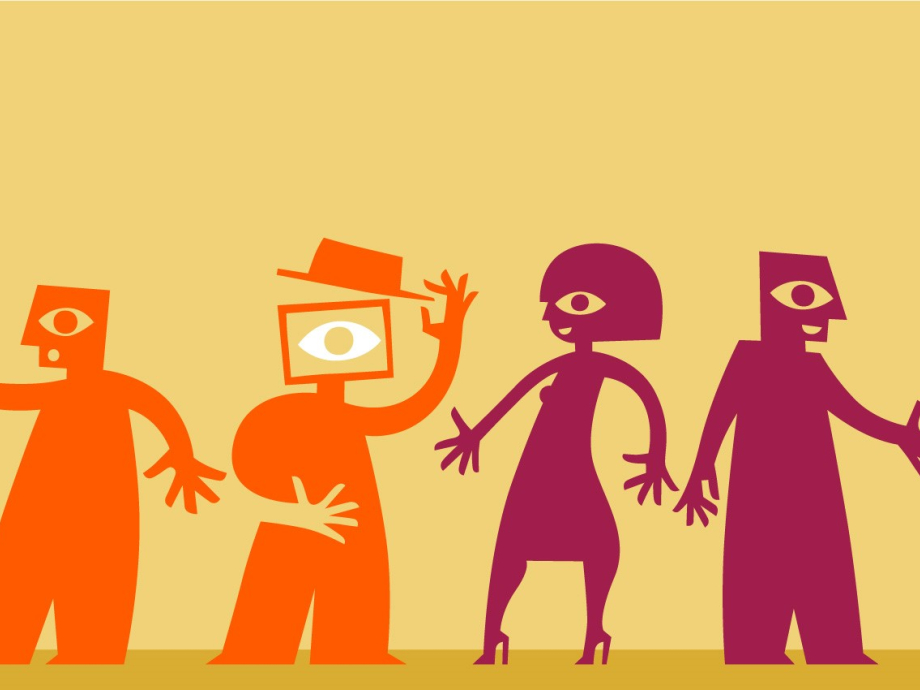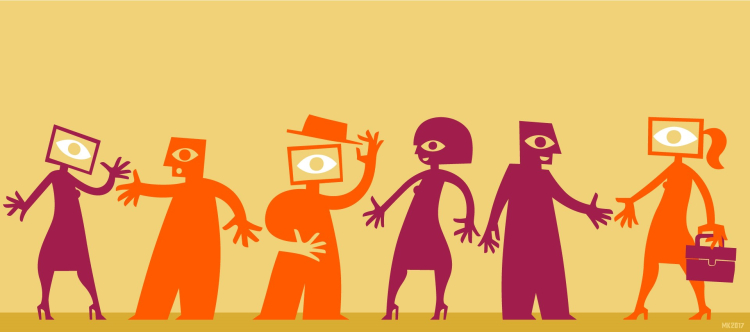Wanted: digital innovation that respects humankind
It’s high time for us to think about how to use digitisation to improve society.

By Melanie Peters, Director of the Rathenau Instituut
Reading time: 3 minutes | Be sure to read the other articles in the Decent Digitisation series.
The Netherlands is one of the most digitally literate countries in the world and has been for many years. That didn’t happen overnight. In 1979, the country faced a huge challenge: the advent of the personal computer. The government foresaw that the rise of the microchip would bring about dramatic changes in society. It was crucial for the Dutch to make a smooth transition. A committee under the leadership of Gerhart Rathenau took on the task of studying ‘the implications for society of Micro-Electronics’. Among his other achievements, Rathenau was one of the initiators of a project that would bring personal computers into the homes of many of thousands of Dutch people.

But there’s also a dark side to digitisation
We need Rathenau’s prescience again today. Digitisation has become integral to our lives; it is critical to our businesses, it is changing our government, and it is even influencing our romantic relationships. The time separating each successive change is growing shorter, and the arrival of the super-fast national 5G network will only quicken the pace. That’s why it’s high time for us to think about how we deal with digitisation.
On the one hand, digitisation puts pressure on such public values as decent work, security and human dignity. For example, a recent study by the Rathenau Instituut has shown that robots and artificial intelligence are taking over a growing number of human tasks. We’ve also recently discovered that ransomware poses a security threat to port terminals, power plants, hospitals – even our own holiday snaps. Digitisation puts other values at risk too: autonomy, justice, technological control, and a fair balance of power.
How do we create an ethical digital society?
Digitisation also offers us all sorts of opportunities, as our publications A fair share and Urgent Upgrade show. But it’s up to us to take advantage of them. To create an ethical digital society, we need to follow the example of our predecessors in 1979 and work together to ensure that digitisation genuinely supports the values that we all share – the values laid down in our constitution and in human rights conventions. That is the challenging subject that we will be addressing over the next few months in this series of blogs. We have invited philosophers and practitioners to share their ideas and their solutions for our reflection. We’ll focus on a different theme every month, for example the power of super platforms, the influence of algorithms on our lives, and how to preserve our autonomy.
How to contribute to our blog series
We hope that collecting these different views in one place will inspire all those involved in digitisation. Would you like to respond to a blog post or write one of your own? Then please contact our researchers Jurriën Hamer or Linda Kool. We also welcome your comments on Twitter, LinkedIn en Facebook.
Read more about the impact of digitisation
The Rathenau Instituut has spent the past few years studying digitisation at great length. One of the factors we noted is the potential of digital applications to violate personal privacy. That is why we made various recommendations in 2017:
- We must improve the way that we take decisions about digitisation. In other words, the Netherlands requires a better governance structure. That structure:
- will speed up the process of turning research findings about ethical issues into specific policy plans;
- will force businesses to take responsibility by agreeing on codes of ethics and by considering public values from the initial stages of product or service development;
- will ensure that users have a greater say and are better organised.
- Respect for human rights is essential to an ethical digital society.
- First of all, we must update existing rights and freedoms. After all, what does the right to ownership mean in the 21st century? Does it mean that your home can’t simply be designated as a Pokémon gym without your say? And what does the right to privacy mean when you and your devices are constantly being tracked?
- Second, we must think hard about ‘new’ rights and freedoms. The Rathenau Instituut has proposed introducing the ‘right to meaningful contact’ and the ‘right not to be manipulated, coached or tracked’.
By Melanie Peters, Director of the Rathenau Instituut
Read more
Be sure to read the other articles in the Decent Digitisation series, and the related reports:
- Human Rights in the Robot Age. Challenges arising from the use of robotics, artificial intelligence, and virtual and augmented reality
- A fair share. Safeguarding public interests in the sharing and gig economy
- A never-ending race. On cyberthreats and strengthening resilience
- Urgent upgrade. Protect public values in our digitized society